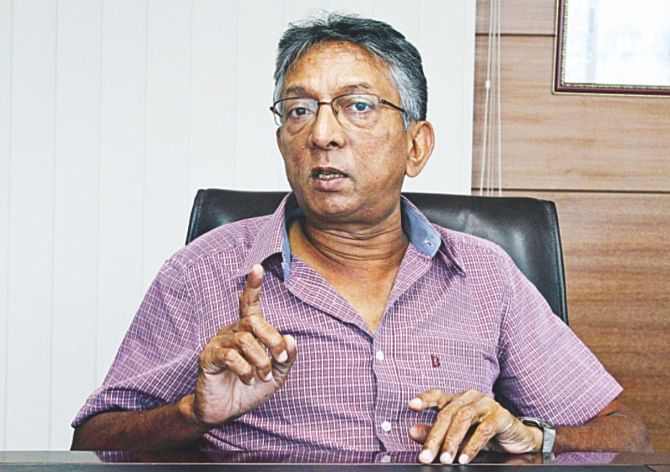Janata Jute plans to make green shopping bags

Janata Jute Mills Ltd is preparing to make a foray into the global jute-made shopping bag market as demand for the natural fibre is soaring amid environmental concerns.
One of the largest manufacturers and exporters of jute products in Bangladesh, Janata is now installing an effluent treatment plant at its factory in Ghorashal in Narsingdi as the first step towards entering the shopping bag segment.
"The demand for the shopping bag in the international market is growing incredibly. The potential is incredible due to growing concern over the environment," said Mahmudul Huq, deputy managing director of Janata Jute, a winner of third HSBC Export Excellence Awards.
The international market is gradually shifting focus from the environmentally hazardous plastic ones to jute shopping bags. As a result, demand will rise substantially in the coming days, he said.
Janata Jute is also in talks to enter a programme under USAID.
Huq said the firm is starting operations on its own factory premises, and it will have to set up a lamination machine and go for fabric dyeing.
"We will then be able to go for shopping bag manufacturing and marketing. It will take less than a year to crack the market," said the 59-year-old.
Huq's family holds majority shares in Janata Jute and Sadat Jute Industries.
In the last 18 years, the mills have received the National Export Award on 17 occasions, in addition to various other national and international awards.
Bangladesh is the second largest producer of jute after India but the country has failed to crack the global jute shopping bag market, where India is a dominant player.
Huq, who graduated in international relations from Sussex University, said his company would aim for the export market, and may set aside a small amount of its production for the domestic market.
Global demand for shopping bags is estimated to be 500 billion pieces and worth around $500 billion a year, according to International Jute Study Group.
Bangladesh has the same scope, as India, to produce jute shopping bags, said Huq.
The sector has been unable to make a niche in the local Bangladeshi market for a number of reasons: the country is better at making industrial bags and sacks, rather than shopping bags, as local mills cannot produce decorative shopping bags.
Shopping bags are mainly being produced by young entrepreneurs who are largely inexperienced and not being able to go abroad to explore opportunities for visa limitations.
Meanwhile, India is doing well as it has set up a hub where fabric suppliers are providing the fabric for somebody involved in processing, laminating and dyeing, before being passed on to shopping bag producers, he added.
Although a law was passed to mandate the use of jute sacks for packaging four years ago, the progress is not encouraging.
"If you want to go for 100 percent implementation, it will be a mistake. You should target 10 or 20 percent or ensure enforceability and make everybody accustomed to it," said Huq.
“Authorities will have to listen to the difficulties of the millers, and understand the industry's ability to supply 100 percent jute-made sacks. If we accept this reality, implementation will be much easier."
However, the government and industry are now working together to implement the law properly, he added.
Huq, also managing director of Sadat Jute, said the export of bags and sacks are lagging for ongoing conflict and tension in markets such as Syria, Sudan, and Thailand, and currency devaluation in India.
Many exporters would have to fold their businesses, if the situation does not improve in the existing export markets, he added.
Fabric exports have been hit by the prolonged crisis in the European Union, with demand dropping by 40 percent, said Huq.
In the spinning sector, idle capacity is high, while demand is low, which forced spinners to cut the number of workdays a week from six to five; it will come into effect from November 1, he added.
Huq alleged that jute is now in the hands of stockists and hoarders.
Raw jute prices have gone up by about 25 percent since August this year, as both the quality and quantity of the crop was depressing this year, he said.
Huq's two mills exported 47,000 tonnes of yarn, processed fibre, woven and non-woven products last year, bringing home Tk 400 crore.
Last year, the number of countries purchasing goods and products from the two mills was 52. They employ 7,500 workers.

 For all latest news, follow The Daily Star's Google News channel.
For all latest news, follow The Daily Star's Google News channel. 



Comments